(CNN) -
This is a look at the Taliban movement, a Sunni Islamist organization that operates mainly in Afghanistan and Pakistan.
Facts:
Outlaw leader Mullah Mohammed Omar led the Taliban from the early 1990s until his death in 2013.
Taliban, in Pashto, is the plural of talib, which means student.
Most of the members are Pashtuns, the largest ethnic group in Afghanistan.
The exact number of the Taliban forces is unknown.
The group's goal is to impose its interpretation of Islamic law in Afghanistan and eliminate foreign influence in the country.
advertising
Chronology:
1979-1989 -
The Soviet Union invades and occupies Afghanistan.
Afghan resistance fighters, collectively known as mujahideen, fight back.
1989-1993 -
After the Soviet Union withdraws, fighting between the Mujahideen leads to chaos.
1994 -
The Taliban movement is formed, which is comprised of mostly students, and is led by veteran Mujadhin Mullah Omar.
November 1994 -
The Taliban take control of the city of Kandahar.
September 1996 -
The capital, Kabul, falls to the Taliban.
1997 -
The Taliban issue a mandate renaming Afghanistan the Islamic Emirate of Afghanistan.
The country is only officially recognized by three countries: Pakistan, Saudi Arabia, and the United Arab Emirates.
1996-2001-
The group imposes strict Islamic laws on the Afghan population.
Women must be covered from head to toe, they are not allowed to attend school or work outside the home, and they are prohibited from traveling alone.
They also ban television, music, and non-Islamic holidays.
1997 -
Mullah Omar forges a relationship with Osama bin Laden, who later moves his base of operations to Kandahar.
August 1998-
The Taliban seize Mazar-e-Sharif, and take control of approximately 90% of Afghanistan.
March 2001 -
The Taliban destroy two 1,500-year-old Buddha figures in the city of Bamiyan, claiming they were idols desecrating Islam.
October-November 2001 -
After major bombings by the United States as part of Operation Enduring Freedom, the Taliban lose control of Afghanistan to the United States and Northern Alliance forces.
December 2006 -
One of the top Taliban leaders, Mullah Akhtar Mohammad Osmani, is killed in an airstrike by the United States.
February 2007 -
Mullah Manan, a senior Taliban commander, is killed in an airstrike in southern Afghanistan.
May 2007 -
Mullah Dadullah Lang, one of the top Taliban leaders, is assassinated in a US-led and NATO-backed coalition operation.
August 2007 -
During a visit to Afghanistan, Iranian President Mahmoud Ahmadinejad denies that his country is giving arms to the Taliban.
December 11, 2007
- NATO-backed Afghan troops retake the provincial town of Musa Qala from Taliban control.
February 2008 -
Taliban operative Mullah Bakht Mohammed is captured by Pakistani forces.
October 21, 2008 -
Foreign Minister Saud al-Faisal confirms that Saudi Arabia hosted talks between Afghan officials and the Taliban in September.
It is reported that no agreement was reached.
April 25, 2011 -
Hundreds of prisoners escape from a jail in Kandahar by crawling through a tunnel.
The Taliban take responsibility for the escape, claiming 541 prisoners escaped, while ISAF says the figure is 470.
September 10, 2011 -
Two Afghan civilians are killed and 77 US soldiers injured during a vehicle improvised explosive device (SVBIED) attack at the entrance to Sayed Abad combat post, an ISAF base in Wardak province. from Afghanistan.
The Taliban took responsibility.
September 13, 2011 -
Taliban militants open fire at the US embassy and at the headquarters of the NATO International Security Assistance Force in central Kabul. Three policemen and a civilian lose their lives. Taliban spokesman Zabiullah Mujahid tells CNN that his target is the US embassy, government organizations and other foreign organizations.
February 27, 2012 -
The Taliban take responsibility for a suicide bombing near the main gate of the International Security Assistance Force base at Jalalabad airport in Afghanistan. At least nine people died and 12 were injured in the blast. The Taliban argue that the attack is in retaliation for burning Quran books at a US base last week.
August 8, 2012 -
According to senior US government officials, in an effort to reignite peace talks with the Taliban, the Obama administration proposes a prisoner swap under which it would transfer five Taliban prisoners to Qatar in exchange for an American soldier held by the Taliban. The new proposal involves first sending the five Taliban prisoners to Qatar, before the Taliban release Sergeant Bowe Bergdahl. The original offer proposed to transfer the Taliban prisoners into two groups, and that Bergdahl be released in the meantime.
June 18, 2013 -
A Taliban political office opens in Doha, the capital city of Qatar.
The Taliban announce that they hope to improve relations with other countries, move towards a peaceful solution to the occupation of Afghanistan and establish an independent Islamic system in the country.
September 21, 2013 -
Pakistan announces that Mullah Abdul Ghani Baradar, one of the founding members of the Taliban, has been released from prison.
Baradar had been captured in Karachi, Pakistan, in 2010.
May 31, 2014 - The
United States transfers five detainees from Guantanamo Bay to Qatar in exchange for the release of Sergeant Bowe Bergdahl.
They are Khair Ulla Said Wali Khairkhwa, Mullah Mohammad Fazl, Mullah Norullah Nori, Abdul Haq Wasiq, and Mohammad Nabi Omari.
Bergdahl is believed to have been being held by the Taliban and the al Qaeda-aligned Haqqani network in Pakistan.
September 26, 2014
-
A Taliban offensive in Afghanistan's Ghazni province leaves an estimated 100 civilians dead or injured, including some women and children who were beheaded, according to a provincial deputy governor.
July 29, 2015 -
An Afghan government spokesman said in a statement that Taliban leader Omar had died in April 2013 in Pakistan, citing "credible information."
A spokesman for the Afghan intelligence services told CNN that Omar died in a hospital in Karachi.
December 21, 2015 -
A police official said that Taliban forces had taken almost complete control of Sangin, a strategically important city in Helmand province.
May 21, 2016 -
Taliban leader Mullah Akhtar Mohammad Mansour is killed in an airstrike in Pakistan.
May 25, 2016 -
The Taliban appoint Mawlawi Haibatullah Akhundzada as their new leader.
She is a high-level religious cleric who is part of the founding generation of the group.
January 25, 2017 -
The Taliban send an open letter to the President of the United States, Donald Trump, who has just taken office.
The letter calls on Trump to withdraw US forces from Afghanistan.
April 21, 2017 -
The Taliban attack an Afghan army base in the north of the country, killing and wounding more than 100 people.
July 25, 2017 -
CNN reports exclusive videos suggesting that the Taliban are receiving weapons in Afghanistan apparently provided by the Russian government.
Moscow categorically denies that it is arming the Taliban.
August 3, 2017 -
The Taliban and ISIS launch a joint attack on a village in northern Afghanistan, killing 50 people, including women and children, according to local official sources.
January 27, 2018 -
An attacker driving an ambulance packed with explosives detonates in Kabul, killing 95 people and wounding 191 others, Afghan authorities say.
The Taliban claim responsibility.
February 28, 2018 -
Afghan President Ashraf Ghani says the government is willing to recognize the Taliban as a legitimate political party as part of a possible ceasefire agreement.
May 30, 2018 -
US military officials claim their troops killed "dozens" of Taliban leaders when a barrage of US artillery fell on a gathering of insurgent commanders on May 24.
June 7, 2018 -
In a video message, Ghani announces that Afghan forces have agreed to a ceasefire with the Taliban between June 12 and 21.
The proposed truce coincides with the holiday of Eid al-Fitr, a period in which Muslims celebrate the end of Ramadan, the Islamic holy month of fasting.
June 9, 2018 -
Taliban fighters kill 17 Afghan policemen in an attack on a police base before dawn, hours before the militant group calls for a three-day ceasefire.
June 15-17, 2018 -
The three-day ceasefire between the Taliban, Afghan forces and the NATO-led coalition is marred by two deadly attacks.
The ISIS, which did not participate in the truce, claims responsibility for a suicide attack in Nangarhar province that kills at least 25 people, including Taliban members and civilians.
A second suicide bombing takes place near the Nangarhar governor's headquarters, killing at least 18 people and wounding at least 49. There is no immediate claim of responsibility for the second attack.
July 25, 2018 -
The Wall Street Journal reports that US diplomats recently met with representatives of the Taliban in Qatar.
August 10, 2018 -
The Taliban launch an attack on the strategic Afghan city of Ghazni, south of the capital Kabul, seizing key buildings and exchanging fire with security forces.
At least 16 people are killed and 40 injured, the majority being Afghan security forces.
October 13, 2018 -
The Taliban release a statement announcing that the group has met with the US envoy for Afghanistan, Zalmay Khalilzad, to discuss the conflict in Afghanistan.
The United States does not confirm that the meeting took place.
November 9, 2018 -
In Moscow, Taliban representatives participate in talks with diplomats from Russia, Pakistan, India and other countries, as well as Afghan government officials.
The United States sends a diplomat from its embassy in Moscow as an observer.
January 22, 2019 -
Afghan authorities say at least 12 members of the military were killed and 28 others injured when the Taliban carried out a suicide attack on a military base in central Maidan Wardak province.
January 28, 2019 -
Officials from the United States and the Taliban announce that they have agreed on a framework that could end the war in Afghanistan. The framework for peace would see the Taliban pledge to prevent the country from being used as a center of terrorism in exchange for a US military withdrawal. An Afghan source close to the negotiations tells CNN that although both a ceasefire and a US withdrawal were discussed, neither side reached definitive conclusions.
January 30, 2019 -
In his quarterly report to the United States Congress, the Special Inspector General for the Reconstruction of Afghanistan states that the Taliban expanded their control of the territory in 2018 while the Afghan government lost control of the territory.
As of October 2018, the Afghan government only controlled 53.8% of the country's districts, according to the report.
The insurgency made progress to control 12.3% of the districts, while 33.9% of the districts were contested.
February 5-6, 2019 -
Taliban talks take place in Moscow between Taliban leaders and Afghan government politicians.
March 12, 2019 -
Peace talks between representatives of the United States and the Taliban end without a final agreement. Khalilzad, the top US negotiator, says progress has been made and the talks have resulted in two draft proposals. He also says that the two parties will meet again soon, but does not give a specific date.
September 7-8, 2019 -
Trump announces that Taliban leaders were to travel to the United States for secret peace talks over the weekend, but that the meeting has been canceled and that he has completely suspended peace talks with the militant group.
Trump tweeted that he scrapped the meeting after the Taliban claimed responsibility for an attack in Kabul, Afghanistan, that killed a dozen people, including an American soldier.
November 28, 2019 -
On a surprise trip to Afghanistan for a Thanksgiving visit with US troops, Trump announces that peace talks with the Taliban have resumed.
December 7, 2019 - The
United States and the Taliban resume peace talks in Doha, capital of Qatar.
"On Saturday the talks between the Taliban and the United States started from where they stopped," says Taliban spokesman Suhail Shaheen in a tweet.
February 29, 2020 - The
United States and the Taliban sign a landmark agreement that sets in motion the possible total withdrawal of US troops from Afghanistan.
The "Agreement to Bring Peace to Afghanistan" outlines a series of commitments by the United States and the Taliban related to the number of troops, the fight against terrorism and dialogue within Afghanistan aimed at achieving "a permanent and comprehensive ceasefire. . "
April 30, 2020 -
In the month following the signing of the Trump administration's peace agreement with the Taliban, the insurgent group increased its attacks on US Afghan allies to higher levels than usual, according to data provided. to the Pentagon Special Inspector General for the Reconstruction of Afghanistan.
August 9, 2020 -
Afghanistan's great assembly of elders, the Loya Jirga, passes a resolution calling for the release of the last batch of some 5,000 Taliban prisoners, paving the way for direct peace talks with the insurgent group to end nearly two decades of war.
The release of the 400 prisoners is part of the agreement signed by the United States and the Taliban in February.
March 8, 2021 -
In a letter from Secretary of State Antony Blinken to President Ghani, the Biden administration proposes to the Afghan government that it enter into an interim power-sharing agreement with the Taliban.
Blinken also proposes that Afghanistan's neighboring countries, including Iran, take a bigger role and warns that the Biden administration continues to review whether it should withdraw US troops before the May 1 deadline set by the Trump administration.
April 26, 2021 -
General Austin Scott Miller, commander of US forces in Afghanistan and NATO's Resolute Support Mission, confirmed that the United States has begun withdrawing its troops from the Asian country in local areas.
July 9, 2021 -
A Taliban representative assures that they already control 85% of the territory of Afghanistan.
The announcement was made by Shahabuddin Delawar, the group's authority, at a press conference in Moscow.
Meanwhile, hundreds of Afghan families are forced to flee their homes.
July 12, 2021 -
The American general who leads the war in Afghanistan, Austin Miller, handed the Afghan army control over the Taliban advance.
August 9, 2021 -
At least 27 children have died and 136 have been injured in Afghanistan, the United Nations Children's Emergency Fund (UNICEF) said in a statement Monday.
August 12, 2021 - The
United States will send soldiers to Afghanistan to guard the departure of diplomats and possible evacuations.
With these 3,000 additional troops, the US will now have a greater presence in the country than it initially had when the pullout began, CNN's Nick Patton Walsh reported Thursday.
August 13, 2021 -
The Taliban seized control of the city of Kandahar, Afghanistan's second-largest city, Afghan Member of Parliament Gul Ahmad Kamin told CNN on Friday, as the insurgent group continues its rapid advance toward the capital. , Kabul.
Afghanistan Taliban Movement Mullah Omar Pakistan

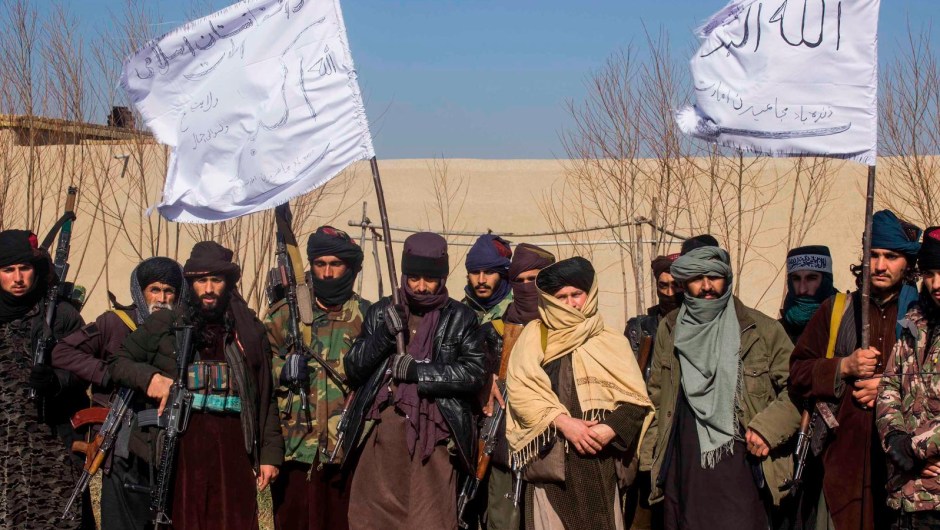
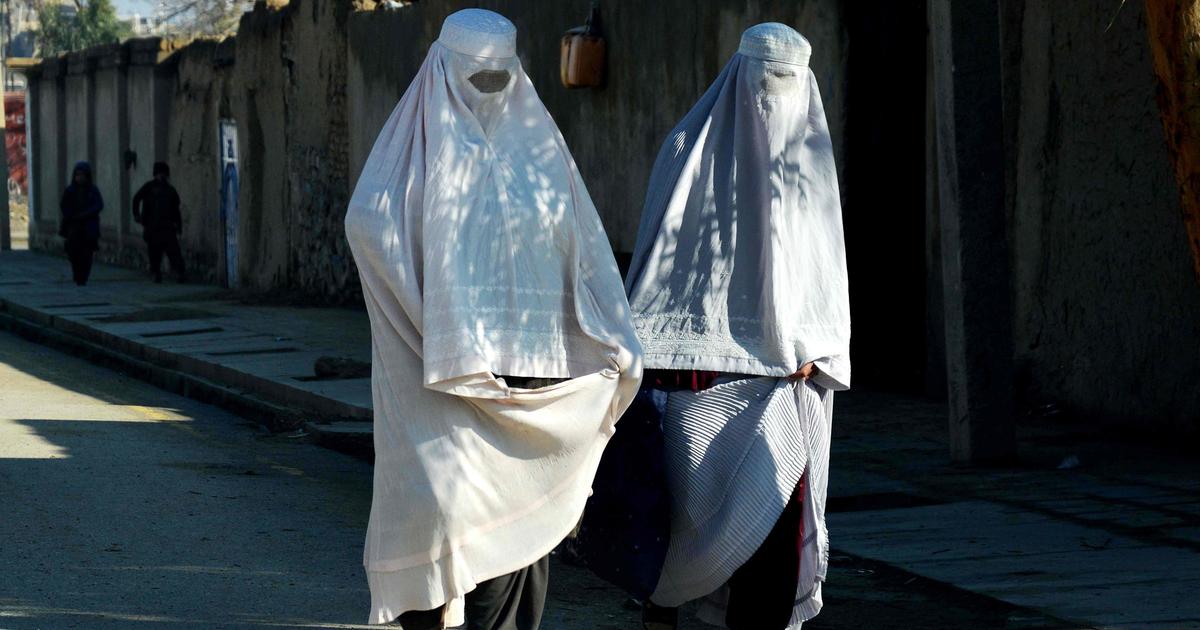
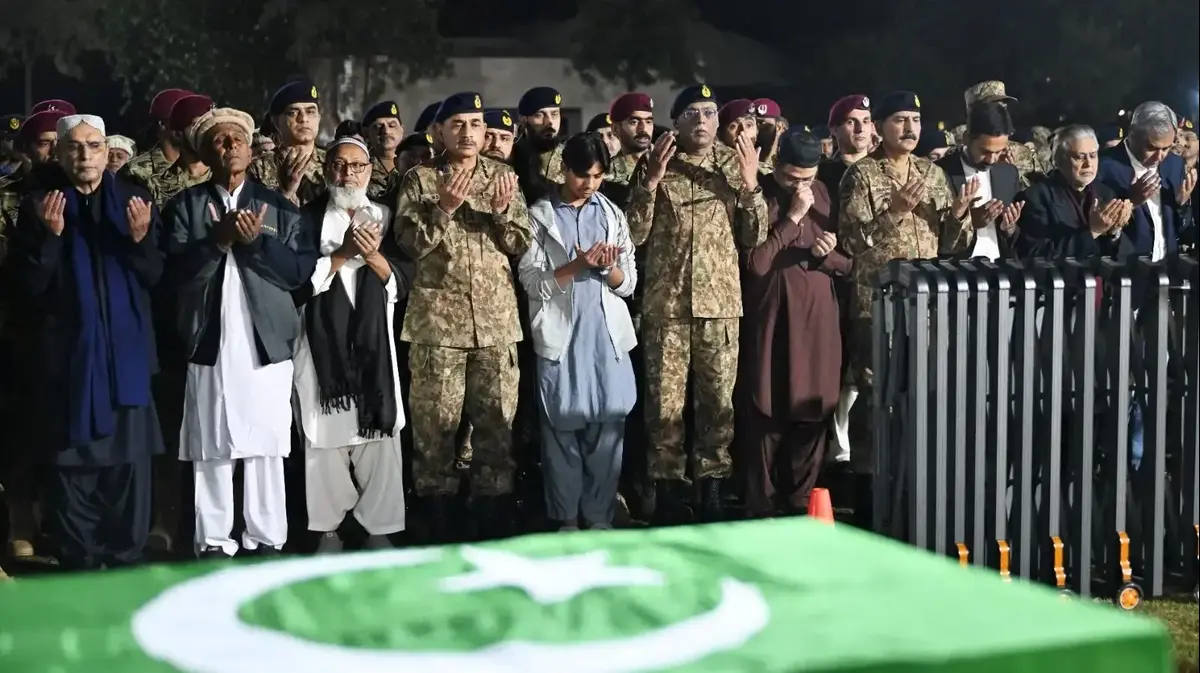

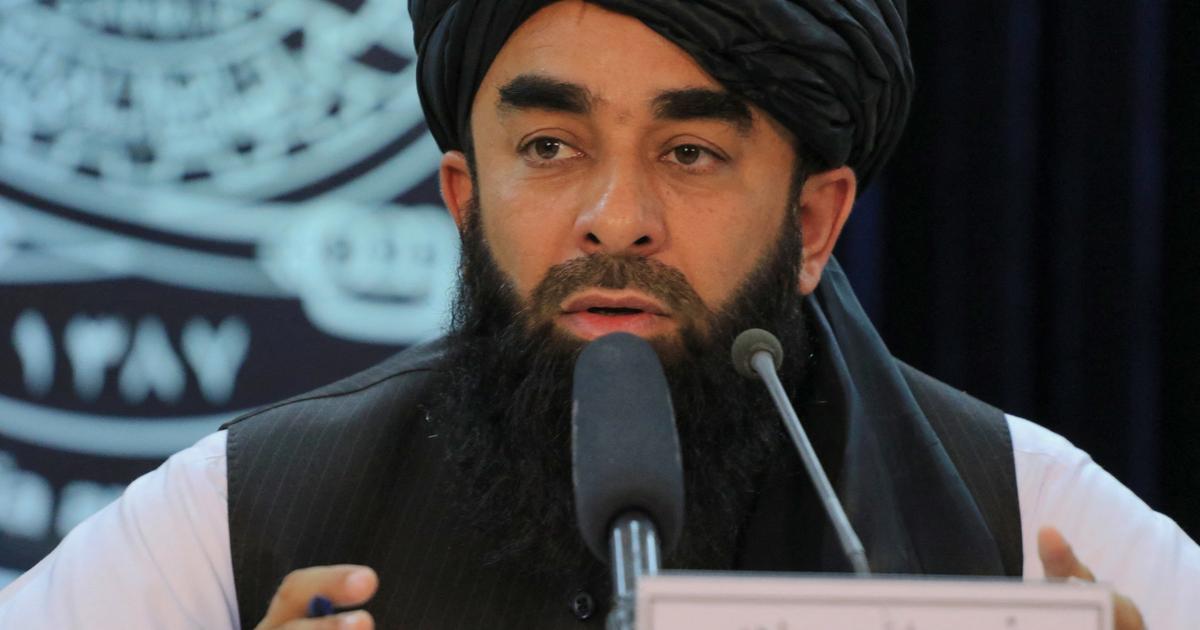
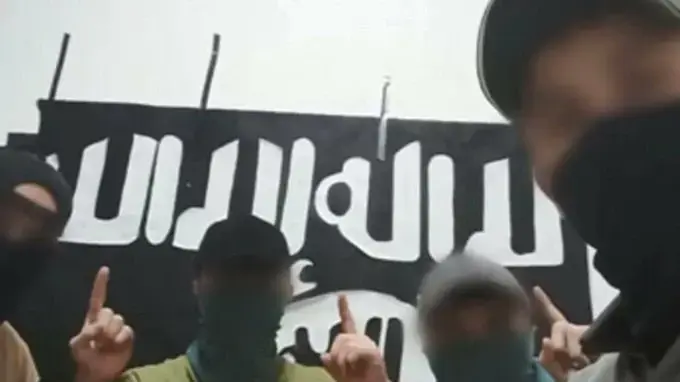

/cloudfront-eu-central-1.images.arcpublishing.com/prisa/KA3LQ5ZEAFEQXOIZXJEEVDUZUQ.jpg)
/cloudfront-eu-central-1.images.arcpublishing.com/prisa/VU7S6EWZZVMMDGHINQUMAFJHCE.jpg)

/cloudfront-eu-central-1.images.arcpublishing.com/prisa/KMEYMJKESBAZBE4MRBAM4TGHIQ.jpg)



